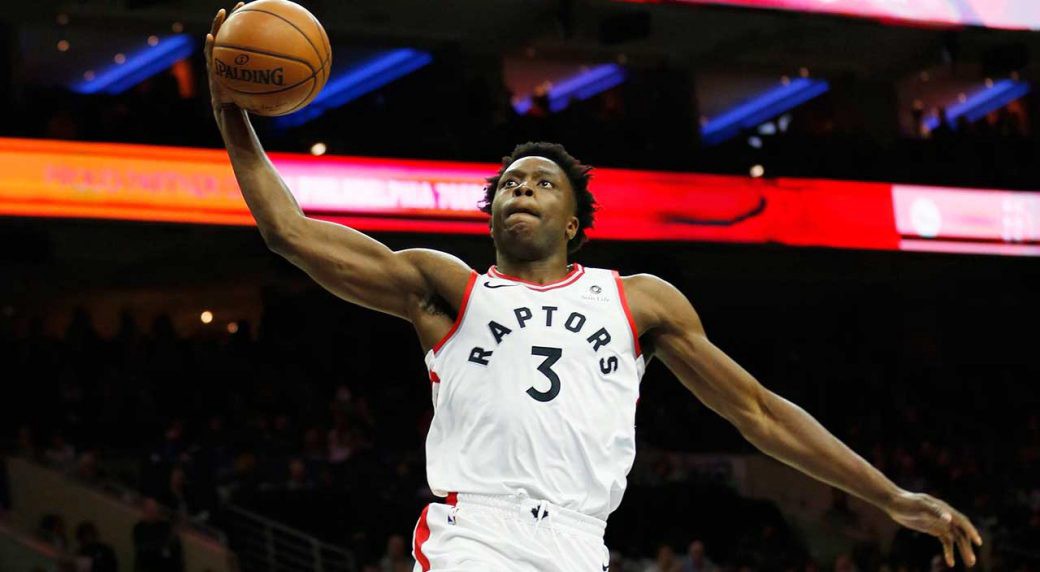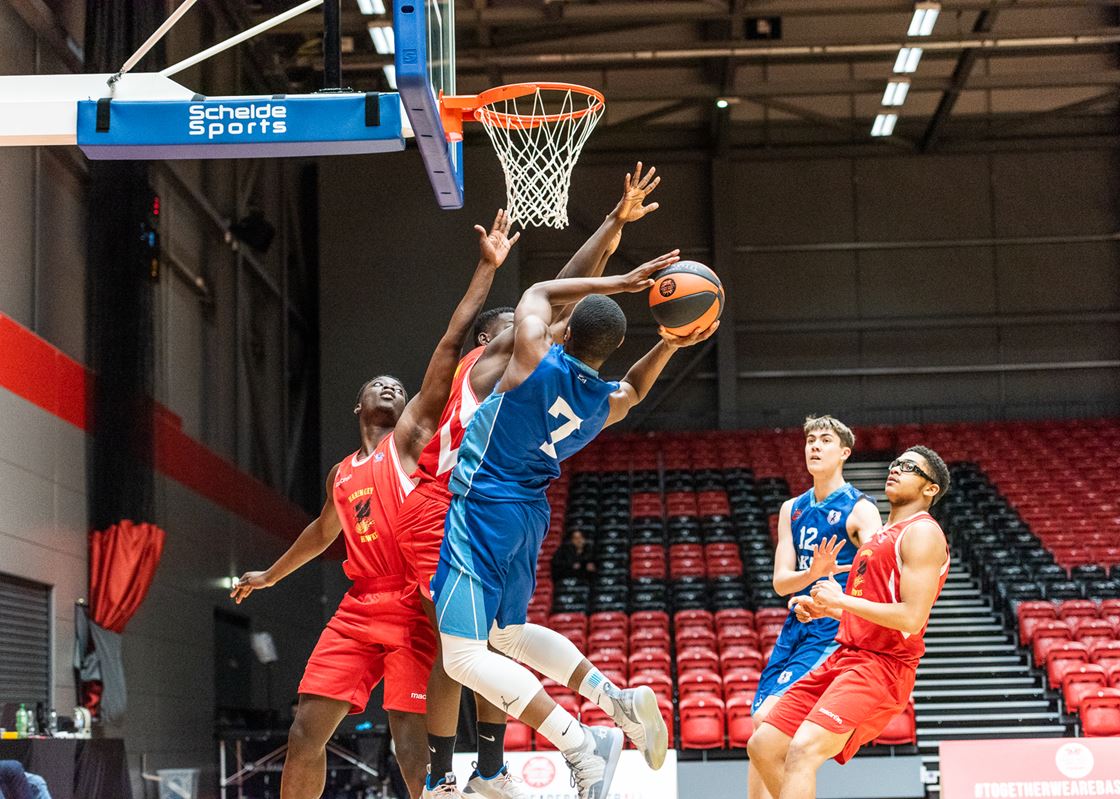
When OG Anunoby drilled a game winner on the wing over the fully outstretched, airbourne two-way superstar Jaylen Brown in the dying seconds of the fourth game of the 2020 Eastern Conference, it felt like a momentous moment.
Not only did it keep the Raptor’s season alive, preventing Toronto from going down to a (usually) insurmountable 3-1 deficit against one of the most dynamic clubs in basketball. Not only was it because Anunoby’s clutch stats are are pretty uninspiring, only managing an uninspiring 4.4 points in clutch situations per 48 minutes and this was, unsurprisingly, the only game winner of his young NBA career. It was because of the country of his birth. Before moving stateside when he was 4 years old and eventually ending up representing the historic Indiana Hoosiers, OG was born in London, England, not too far from where I myself live, (and occasionally do my own stuff on the hardwood). But unlike almost every single individual to ever be born in this country, Anunoby made to basketball’s most elite stage.
Why not more?
It may be easy to see why. Britain is a country with some of the richest sporting heritage and most historic sporting institutions. Rugby, football, cricket, hockey, all global phenomenons and mass exports that take up the prime real estate in the dreams of aspiring sportsmen and women when it’s time to decide discipline, sucking dry the athletic talent at the source and leaving nothing but scraps for the vultures of Basketball England to feed off. Britons who end up making it, including OG, move as far away from home as possible, as early as possible to pursue their hoop dreams.
But there is something more sinister at play here. Class politics. Politicians and lawmakers in Britain seem to follow a familiar path. Private schooling. Spending their school days, predictably, footballing, cricketing and rugbying. Leaving nobody to fight for the sport that stands as the second highest played team sport in the country with 1.2 million people hooping regularly in England alone. Because unlike cricket, basketball is for the inner cities, according to the Independent (2014), half of all 14-16 year olds who play basketball are from black and minority ethnic communities. The situation doesn’t seem to be improving either with 2/3 of Boris Johnson’s current government cabinet being educated in private schools. Without the representation required in the highest offices of this land, basketball’s national governing body simply cannot gain the momentum required to exist let alone become elite.

But it is only when examining the sport’s plummeting funding, does all become clear. The sport has struggled for financial support following team GB’s disappointing 2012 olympic campaign, which saw them go 1-4, Sport England decided that the game was no longer profitable and so funding has been cut dramatically. Between 2018 and 2021, basketball has been given a measly £75,000. The results have been predictably catastrophic. Team GB didn’t manage a qualification spot for the Eurobasket 2015 or the 2016 and 2020 olympic games and currently sit as the 42nd ranked team in the world. It gets worse, whilst Basketball England is left to feed off scraps, some sports are getting fat. Speed skating, a sport with a fraction of the participation (just 62,500 participants in 2020), received 4.8 million pounds between 2014 and 2020 for their olympic aspirations. With all due respect to the speed skaters of this country, this archaic free market approach to funding where we desperately try to cling on to shiny pieces of gold is not only killing our sporting potential, it is robbing the future of untold millions in this country.
Basketball globally presents potentially life-changing opportunities. Although life-long winter sports veterans may argue that slashing their funding would be a gross injustice, and they may be correct in thinking so, there comes a point where the right decision is not the easy one. Away from the well manicured cricket grounds and ice rinks, in the grim realities of our inner-cities, where opportunities are few and second chances rare, basketball could provide an escape. Escape from antisocial behaviour and escape from a life of hardships. Across the pond, the promise of college scholarships and professional basketball provides a beacon of hope for kids deprived neighborhoods, it would be a gross irresponsibility for us to deny our people the same.
Despite the hardships faced by basketball in this country, which has been exposed to its bare bones by the covid pandemic, there is reason to remain hopeful. Afterall, 1.2 million people in this country regularly pick up a basketball, look at the rim, and think what if?
Stop letting them down.